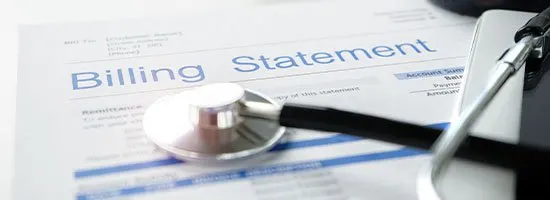Medical debt is among the leading causes of financial adversity in the United States. According to the Journal of General Internal Medicine, as of 2019, about 137.1 million Americans have medical debt. Of these, approximately 62% report having health insurance. Medical insurance covers the cost of your treatment and protects you against unexpected, high medical expenses. However, not everything is covered by insurance. Failure to pay what you’re expected to pay may cause your medical debts to be sent to collections.
If you have insurance but were sent to collections for a medical bill, it is important that you speak with an experienced consumer rights attorney for detailed guidance. At Stecklein & Rapp, we are dedicated to offering experienced legal guidance and reliable advocacy to clients in medical debt and collections matters. Our attorneys are available to discuss your unique situation, help you understand what is covered under your insurance policy, and explore the legal options available to you. We’re proud to serve clients across Kansas City—in both Kansas and Missouri—and Lincoln, Nebraska.
Medical Bills and Your Obligations
The purpose of medical insurance is to cover the cost of your treatment (up to your coverage limit) and protect you from unexpected, high medical expenses. However, health insurance hardly covers all the costs of your medical care. As a policyholder, you are still obligated to pay your portion of the medical bills that aren’t covered under your insurance policy.
Furthermore, the insurance provider often sends out an Explanation of Benefits (EOB) to the policyholder before they receive a bill from the hospital or medical provider. The EOB will provide an in-depth report on how your insurance claims were processed including any coinsurance amounts, deductibles, and the medical services that were denied.
Carefully reread your medical insurance policy, understand your medical insurance Explanation of Benefits (EOB), and go over the essential documents. This will help you better understand your expected out-of-pocket costs, and you can make adequate provisions to clear your hospital bills before they are sent to collections.
Steps to Take Before Paying Your Medical Bill
Medical bills often contain several errors, and patients end up paying huge medical expenses. Moreover, insurance providers usually deny claims mistakenly. Therefore, it is important that you take adequate measures to avoid paying huge medical bills that you do not owe. Here are some steps to take before paying your medical bills:
- Check your insurance information to ensure that your medical bill is accurate and was processed by your provider.
- Compare your medical bill to the Explanation of Benefits (EOB) to verify that the amount on your invoice is the same amount your insurance provider says you owe.
- Ask for an itemized statement of the medical bills to ensure that you are paying for the treatments or medical services you received.
- Check the codes on your medical bills to ensure that your provider is only paying for the treatments or medical services you received.
- If the medical bill is more than what you can afford, try to negotiate a reduction in your medical debt with the provider or propose a payment plan that is workable for you.
- Take preemptive actions to settle your medical bills or dispute any errors you notice in your report.
Disputing a Medical Bill
If you notice an overcharge on your medical bill or your insurance claims were wrongly denied, follow the steps below to dispute the medical bill:
- Ask for an itemized statement outlining all the treatments and medical services you received.
- Discuss with your medical provider to explain some of the charges you don’t understand. You can also request that your medical bill should be reviewed.
- Reach out to your insurance provider to discuss why your policy isn’t covering what the insurance plan is supposed to cover.
- Take notes and gather necessary evidence, including your medical record and hospital bills.
- Hire an experienced attorney to help you file an insurance appeal, dispute your medical bill, or negotiate a feasible payment plan with the medical provider.
How It Could Affect Your Credit
Over time, your medical provider may turn over an unpaid medical debt to a collections agency. Upon purchasing the medical debt, the collection agency will report the account to any or all of the three credit bureaus – Experian, Equifax, and TransUnion.
Furthermore, the debt will appear as unpaid on your credit report for the next seven years. An unpaid medical debt in collections can harm your credit score by up to 100 points. Even after paying off your medical collection account, the debt will only be updated and won’t be removed from your credit report.
Stecklein & Rapp: Experience You Can Trust
Making small payments or being delinquent on your medical debts might cause the provider to turn the bills over to collections. This could result in a lowered credit score. If you had insurance but were sent to collections for a medical bill, your best bet is to consult with an experienced consumer protection attorney for detailed guidance.
At Stecklein & Rapp, we have the resources and experience to assist clients in medical debts and collections-related matters throughout Kansas City and surrounding areas. As your legal counsel, we can review the details of your personal situation, enlighten you about the terms of your insurance coverage, and determine the best course of action. Our team will evaluate your medical bills to detect errors, help dispute overcharge on your medical bill, dispute a claim denial, or negotiate a payment plan with the provider that is workable for you.
If you live in Eastern Kansas or Western Missouri, as well as Lincoln, Nebraska, get in touch with Stecklein & Rapp today. One of our knowledgeable and aggressive consumer rights attorneys will consult with you and help you move forward.

